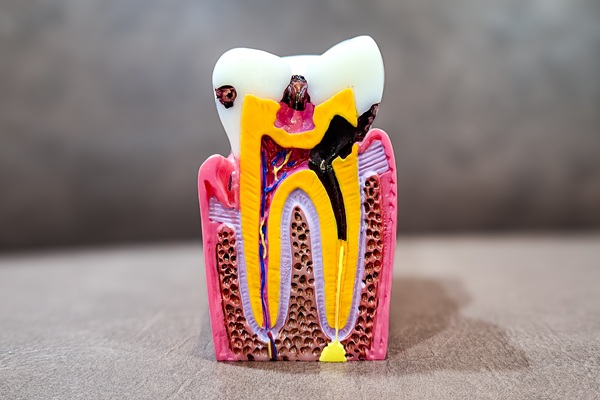Root Canal vs. Extraction: Make the Right Choice for Your Oral Health

A root canal is a common procedure a general dentist with endodontic training performs to save a tooth that has become infected or severely decayed. However, when faced with deciding between a root canal and tooth extraction, many patients are uncertain about which option is most suitable for their oral health. Both treatments have pros and cons, and the right choice depends on the condition of the tooth, the patient's overall health, and their long-term oral goals.
The benefits of a root canal
A root canal can save a damaged or infected tooth, allowing it to remain in the mouth and function normally. During the procedure, the dentist removes the infected pulp from the tooth, cleans the root canal, and seals it with a filling material. Once the procedure is complete, the tooth is restored with a dental crown to protect and reinforce it.
One of the main benefits of a root canal is that it preserves the natural tooth structure. Keeping the natural tooth is ideal for maintaining proper alignment and function of the surrounding teeth. By preserving the natural tooth, a root canal helps prevent potential issues such as shifting adjacent teeth or bite problems that may occur after an extraction. Additionally, the procedure is typically effective in relieving pain and eliminating infection, allowing the tooth to last for many years.
The drawbacks of a root canal
While root canals can save a damaged tooth, it is not always the most suitable option. A root canal can be time-consuming and may require multiple visits to the dentist, especially if the infection is extensive or complicated. After the procedure, the tooth may be more vulnerable to fractures or damage, particularly if it is significantly weakened by decay. As a result, the tooth may eventually need further treatment or replacement.
In some cases, a root canal may not completely eliminate the infection, requiring additional procedures or, in rare cases, tooth extraction. If a tooth is severely infected or damaged beyond repair, a root canal may not be viable.
The benefits of an extraction
Extraction, or removing a damaged or infected tooth, may be necessary when a root canal is impossible or the tooth is beyond saving. Extracting a tooth eliminates the infection and prevents it from spreading to other teeth or areas of the mouth. It also alleviates any associated pain or discomfort.
An extraction may be a more straightforward option than a root canal, particularly in cases where the tooth is severely decayed or damaged. For patients with advanced periodontal disease or significant tooth damage, removal may be necessary to prevent further complications.
The drawbacks of an extraction
While tooth extraction can provide immediate relief, a replacement tooth, such as a dental bridge, dental implant, or denture, is necessary. This replacement can be costly and may require additional procedures, such as bone grafting, to ensure a proper fit and optimal functionality. Additionally, missing teeth can affect the bite, lead to shifting of adjacent teeth, and cause aesthetic concerns, particularly if the extraction occurs in the front of the mouth. Extracting a tooth can also impact long-term oral health by affecting the surrounding bone structure, as it will deteriorate without an effective solution.
Schedule an appointment
Deciding between a root canal and tooth extraction depends on various factors, and you should not make this decision by yourself. Consulting a general dentist can help you better weigh both options. Contact Short Hills Smiles to schedule an appointment.
Request an appointment here: https://www.shorthillssmiles.com or call Short Hills Smiles at (973) 761-3303 for an appointment in our Millburn office.
Check out what others are saying about our dental services on Yelp: Root Canal in Millburn, NJ.
Related Posts
Those missing one or more molars may benefit from dental implants. The molars are the large, flat teeth in the back of your mouth, used to grind your food when chewing. Not counting your wisdom teeth, you have eight molars in your mouth, all of which play an important part in your ability to chew…
Esthetic dentistry has moved beyond a simple set of braces to embrace many ways to restore harmony and balance. Your teeth, facial features, and gums all work together to create your smile. When one component is off, it can affect your appearance. Esthetic dentistry can be an important tool to construct your beautiful smile while…
Dental crowns are a popular option for restoring a smile, but they offer more benefits than you may know. A dental crown is a customized, tooth-shaped cap placed over a damaged or compromised tooth to help its shape, size, appearance, and strength. Discover common signs indicating a dental crown is right for you.A dental crown…
Esthetic dentistry concentrates on improving the appearance and function of a patient’s oral environment. Achieving this goal helps you to achieve a natural, vibrant, and healthy appearance. By the end of your esthetic treatments, you will notice an improvement in your mouth’s function as well. If you want to find out about the common dental…
